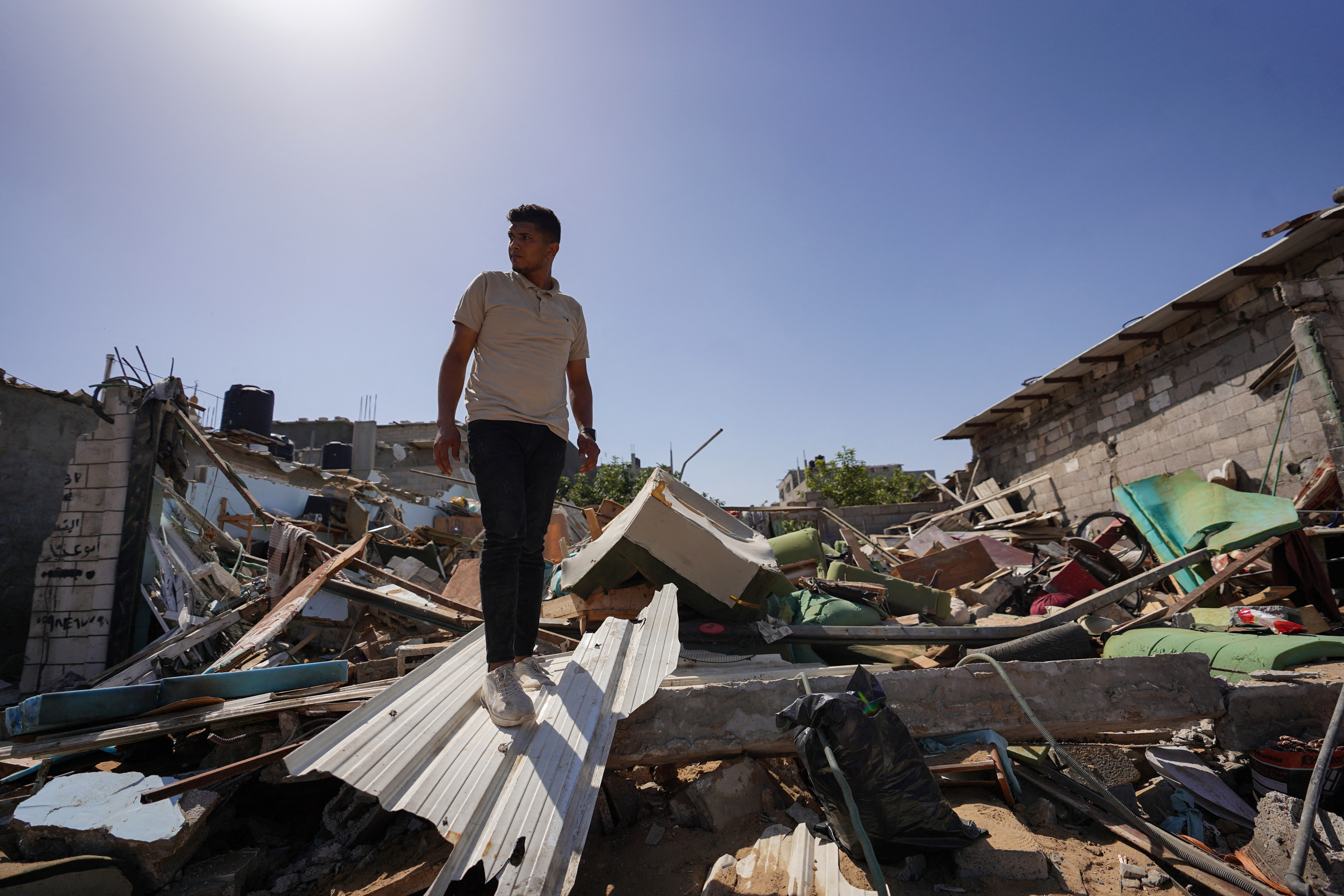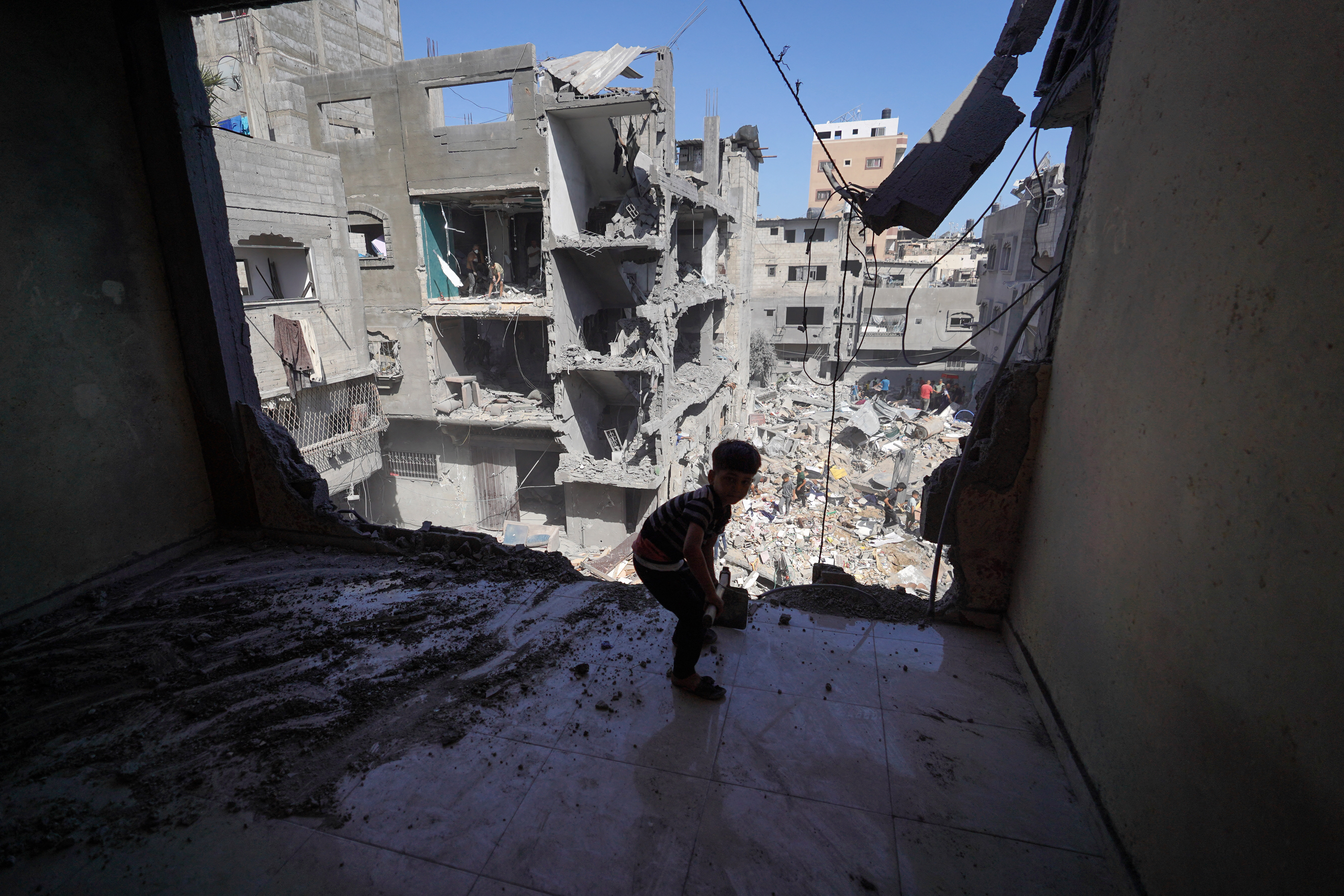
Internal divisions in Israel’s government and the dissolution of its war cabinet have cast doubts on Tel Aviv’s objectives in Gaza, which analysts say are delaying a cease-fire deal and the distribution of emergency humanitarian aid to starving Palestinians.
The war cabinet was dissolved as the Israel Defense Forces announced a “local, tactical pause of military activity for humanitarian purposes” between 8am and 7pm daily from June 16 until further notice, which drew suspicion from international agencies.
Analysts said that Israeli Prime Minister Benjamin Netanyahu’s latest move and its timing aimed to deflect international criticisms and pacify domestic woes, which are further delegitimizing his embattled government
The IDF said this was to increase the volume of humanitarian aid entering Gaza and followed discussions with the United Nations and international aid organizations.
Analysts said that Israeli Prime Minister Benjamin Netanyahu’s latest move and its timing aimed to deflect international criticisms and pacify domestic woes, which are further delegitimizing his embattled government.
ALSO READ: Netanyahu disbands war cabinet as pressure grows on Israel's border
On June 17, The Times of Israel and other media reported that Netanyahu had disbanded Israel’s six-member war cabinet. Netanyahu had formed the emergency government on Oct 11 last year to manage responses to Palestine’s Hamas and Lebanon’s Hezbollah following Hamas’ surprise attack on Israel on Oct 7.
The decision was announced amid pressure from his far-right coalition partners to form a new “war cabinet” and their threats of expanding the Gaza conflict to Lebanon. The announcement came soon after the resignation of Benny Gantz, a retired general and member of Israel’s Knesset, on June 9.
Nagapushpa Devendra, a West Asia analyst and research scholar at the University of Erfurt in Germany, said dissolving the war cabinet “reflects a shift in Israel's security priorities” with Netanyahu possibly reevaluating the approach to dealing with Hamas and Hezbollah.
She said this may be seen as a tactical maneuver by Netanyahu aimed to further consolidate the power within the prime minister's office and centralize the decision-making processes, especially now that his political rival Gantz has quit the emergency government.
ALSO READ: Netanyahu denounces tactical pauses in Gaza fighting to get in aid
Gantz and Gadi Eisenkot both resigned from the war cabinet in frustration, having publicly questioned Netanyahu’s goals for prolonging the conflict in Gaza and accusing the Israeli leader of using the conflict for his own political interests.
Meanwhile, anti-government protesters have been taking to the streets of Israel amid growing discontent over Netanyahu’s handling of the bombardment in Gaza, demanding the freeing of hostages and even calling for elections.

“Netanyahu's decision to disband the war cabinet may be a strategic ploy to deflect criticism from the international community and the Israeli public,” Devendra told China Daily, noting that Netanyahu may be seeking to enhance his political standing and bolster his reputation on the global stage.
Israel and Hamas remain unable to agree a cease-fire deal through mediators Egypt, Qatar and the US, with Washington and its allies blaming Hamas for the hold up
She said this could also serve to placate domestic critics who have raised concerns about the government's handling of security issues.
READ MORE: Israel's army says defeats half of Hamas forces in Rafah
The timing, is “evidence of a calculated political maneuver” with Israel facing mounting pressure from the international community, the West, and regional leaders, as well as the Jewish community, Devendra said.
At the same time, the IDF’s announcement of a pause in fighting has been called into question with Philippe Lazzarini, commissioner-general of the UN Relief and Works Agency for Palestine Refugees in the Near East, saying that this has not happened.
He said hostilities were ongoing in Rafah and in the south of Gaza and that “operationally, nothing has changed yet”, Al Jazeera reported.
Israel and Hamas remain unable to agree a cease-fire deal through mediators Egypt, Qatar and the US, with Washington and its allies blaming Hamas for the hold up.
ALSO READ: UN agency: Over 600,000 children in Gaza denied education amid war
On June 12, Xinhua News Agency reported that Qatar and Egypt had received a response from Hamas and other Palestinian factions’ to the most recent cease-fire proposal and the exchange of prisoners and detainees, citing the Qatar Foreign Ministry, but no further details were disclosed.
“The current situation reflects Israel's strategic delaying tactics amidst internal turmoil. It is no secret that Israel has long been engulfed in internal conflicts, and now lacks both international and domestic legitimacy,” Arhama Siddiqa, a Middle East analyst and research fellow at the Institute of Strategic Studies Islamabad in Pakistan, told China Daily.

“Netanyahu, now perceived as a desperate leader, appears willing to prolong the war by any means necessary,” Siddiqa added.
She said the 11-hour pause in hostilities offers little reprieve with Israeli atrocities reaching new levels daily and children dying every hour, illustrating the “dire choices between death by bullet or starvation”.
READ MORE: Gaza conflict fans US student protests
“The disbanding of efforts and initiatives serves as a cover. The cease-fire agreement proposed by Qatar and Egypt in May was accepted by all Palestinian factions,” Siddiqa noted, adding that US President Joe Biden’s proposal was perceived as an attempt to salvage his remaining credibility.
“This refusal places the G7 countries in a precarious position, as they endorse that Israel has accepted a cease-fire without Israel's official acknowledgment of such. Israel, now seen as a rogue state, operates beyond the control of any external authority, further complicating the geopolitical landscape,” she added.



